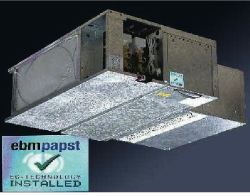High-efficiency motors reduce electrical consumption of fan-coil units



Fujitsu General Air Conditioning becomes GENERAL HVAC Solutions UK
Fujitsu General Air Conditioning (UK) has become GENERAL HVAC Solutions UK from 1st January 2026, strengthening its long-term position within the global Paloma Rheem Holdings (PRH) group.
Market performance indicates encouraging signs for future of BEMS sector
Highlighting an increased desire from property developers, architects and designers to decarbonise the UK’s building stock through the specification and implementation of building controls and automation, the building energy management systems (BEMS) market showed steady progress in Q3 – rising 2.6% compared to the previous quarter.